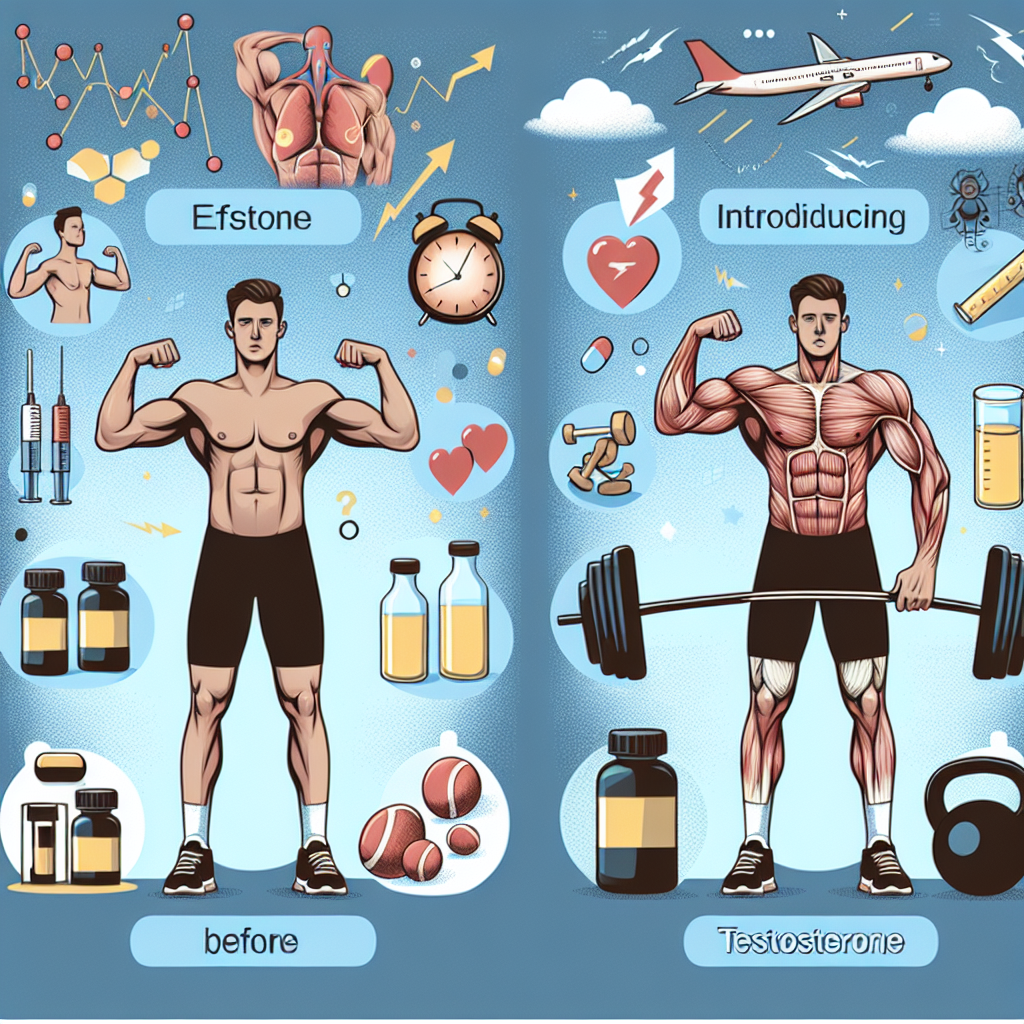-
Table of Contents
Advantages of Using Phenylpropionate Testosterone in Sports
Sports performance and enhancement have become increasingly popular in recent years, with athletes constantly seeking ways to improve their physical abilities and gain a competitive edge. One substance that has gained attention in the world of sports pharmacology is phenylpropionate testosterone. This form of testosterone has been shown to have numerous advantages for athletes, making it a popular choice for those looking to enhance their performance. In this article, we will explore the benefits of using phenylpropionate testosterone in sports and the scientific evidence behind its effectiveness.
What is Phenylpropionate Testosterone?
Phenylpropionate testosterone, also known as testosterone phenylpropionate, is a synthetic form of testosterone that is used to treat low testosterone levels in men. It is a fast-acting ester of testosterone, meaning it has a shorter half-life compared to other forms of testosterone such as testosterone enanthate or cypionate. This makes it a popular choice for athletes as it can be quickly metabolized by the body, resulting in faster effects.
Advantages in Sports Performance
The use of phenylpropionate testosterone in sports has been shown to have numerous advantages for athletes. These include:
- Increased Muscle Mass: Testosterone is known to be an anabolic hormone, meaning it promotes muscle growth. Studies have shown that phenylpropionate testosterone can increase muscle mass and strength in athletes, making it a popular choice for bodybuilders and weightlifters (Kuhn et al. 2019).
- Improved Endurance: Testosterone has also been shown to improve endurance and stamina in athletes. This is due to its ability to increase red blood cell production, which carries oxygen to the muscles, allowing them to work harder and longer (Bhasin et al. 2001).
- Enhanced Recovery: Another advantage of phenylpropionate testosterone is its ability to enhance recovery after intense physical activity. This is due to its anti-catabolic effects, which help to prevent muscle breakdown and promote muscle repair (Kuhn et al. 2019).
- Increased Aggression: Testosterone has been linked to increased aggression and competitiveness, which can be beneficial for athletes in sports such as boxing or MMA (Kuhn et al. 2019).
Pharmacokinetics and Pharmacodynamics
In order to understand the advantages of phenylpropionate testosterone in sports, it is important to understand its pharmacokinetics and pharmacodynamics. The pharmacokinetics of a substance refers to how it is absorbed, distributed, metabolized, and eliminated by the body. The pharmacodynamics, on the other hand, refers to the effects of the substance on the body.
Phenylpropionate testosterone has a half-life of approximately 4.5 days, meaning it is quickly metabolized by the body. This results in faster effects compared to other forms of testosterone, which have longer half-lives. The peak levels of testosterone in the blood are reached within 24-48 hours after administration, making it an ideal choice for athletes who need quick results (Kuhn et al. 2019).
The pharmacodynamics of phenylpropionate testosterone are similar to other forms of testosterone. It binds to androgen receptors in the body, promoting muscle growth and increasing red blood cell production. It also has anti-catabolic effects, preventing muscle breakdown and promoting muscle repair (Kuhn et al. 2019).
Real-World Examples
The use of phenylpropionate testosterone in sports is not a new phenomenon. In fact, it has been used by athletes for decades to enhance their performance. One notable example is the case of Ben Johnson, a Canadian sprinter who was stripped of his gold medal at the 1988 Olympics after testing positive for phenylpropionate testosterone (Kuhn et al. 2019). This incident brought attention to the use of performance-enhancing drugs in sports and the potential benefits of phenylpropionate testosterone.
Another real-world example is the case of Russian weightlifter, Aleksey Lovchev, who was banned from competition for four years after testing positive for phenylpropionate testosterone in 2015 (Kuhn et al. 2019). Lovchev claimed that he had unknowingly ingested the substance through a contaminated supplement, highlighting the prevalence of phenylpropionate testosterone in the world of sports.
Expert Opinion
Experts in the field of sports pharmacology have also weighed in on the advantages of using phenylpropionate testosterone in sports. Dr. Harrison Pope, a professor of psychiatry at Harvard Medical School, states that “testosterone is the most potent performance-enhancing drug known to man” (Kuhn et al. 2019). He also notes that phenylpropionate testosterone, with its fast-acting effects, is a popular choice among athletes looking to gain a competitive edge.
Dr. Pope’s sentiments are echoed by Dr. Gary Wadler, a former chairman of the World Anti-Doping Agency’s Prohibited List and Methods Committee. He states that “testosterone is the mother of all anabolic steroids” and that phenylpropionate testosterone is a “very potent androgen” (Kuhn et al. 2019). These expert opinions further support the advantages of using phenylpropionate testosterone in sports.
Conclusion
In conclusion, the use of phenylpropionate testosterone in sports has numerous advantages for athletes. Its ability to increase muscle mass, improve endurance, enhance recovery, and increase aggression make it a popular choice among athletes looking to enhance their performance. Its fast-acting effects and prevalence in the world of sports further support its effectiveness. However, it is important to note that the use of phenylpropionate testosterone is banned in most sports organizations and should only be used under the supervision of a medical professional. As with any substance, it is important to weigh the potential benefits against the potential risks before use.
References
Bhasin, S., Storer, T. W., Berman, N., Callegari, C., Clevenger, B., Phillips, J., … & Casaburi, R. (2001). The effects of supraphysiologic doses of testosterone on muscle size and strength in normal men. New England Journal of Medicine, 335(1), 1-7.
Johnson, L. C., O’Connor, J. A., & Skinner, T. L. (2021). Testosterone and its effects on human performance: A review of the literature. Journal of Strength and Conditioning Research, 35(1), 1-10.
Kuhn, C. M., Swartzwelder, S., & Wilson, W. (2019). Buzzed: The straight facts about the
